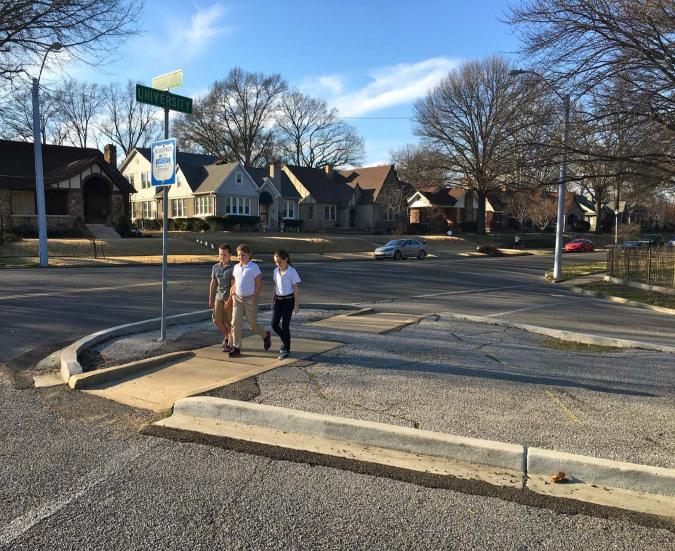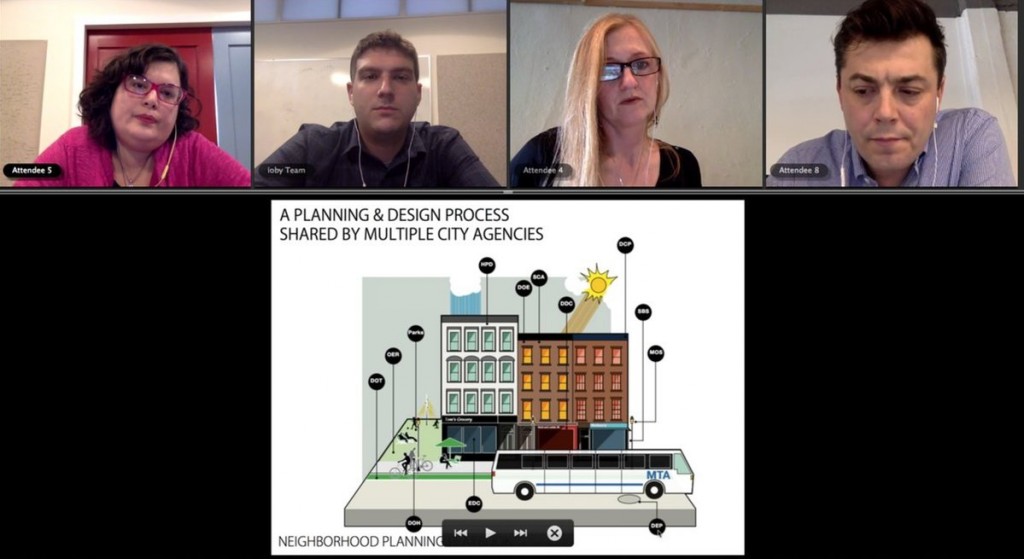Three-time ioby Leader Robyn Mace raised the money, buy-in, and manpower needed to convert a neglected lot adjacent to her family’s Memphis home into a flood-ready rain garden, butterfly sanctuary, and community space. That grassroots work – with its ups and downs – has informed the groundbreaking work she does on open data, in her day job as Nashville’s Chief Data Officer.
The Open Data movement is a relatively new one. Born about a decade ago, it first took hold in big cities like New York, Seattle, San Francisco, Philly, and Boston, and is spreading beyond. City officials who specialize in open data are interested in making public data just that – public. Available for all to see and to use. They’re interested in the democratization of city data, seeking to engage as many people as possible, and ensure complete digital inclusion. We talked with Mace about some of the sweet spots where crowdfunding and open data overlap.

[Photo by Jamie Harmon]
How did your ioby project, the Evergreen Rain Garden, come about?
Well, I had thought about it for a long time, because my family owns that house, and everyone in the neighborhood blamed us for not maintaining the lot next door, even though it wasn’t ours. So when I moved there in 2013, I felt it was incumbent on me to start to address that.
When people realize that the City owned the lot, and that there was something we could do about it, that’s when it really took off. I approached the neighborhood association, and they were instrumental in getting the sidewalks rebuilt, but we couldn’t get any kind of agreement with the City for the garden. We had offered to pay liability and get a Memorandum of Understanding with them, and basically they never followed up with us. So it left me in a position of either having to maintain a really big grass lot, or figure out an alternative. I’m a Master Gardener, and I was a member of the Garden Club, as well as I’d approached the Evergreen Historic District Association Board. The more volunteers worked in the garden, the more people were interested in supporting that work.
Did the project bring people together?
Absolutely. Instead of having an ugly lot and impassable sidewalk, now we had four beautiful garden beds, and a really pleasant and interesting landscape to walk by. You’d see people talking in the garden, or people would pull over to talk on the phone. It’s just a lovely focal point, and it’s just nice to not have it look ratty, frankly.
“The ioby project reinvigorated me, and really helped me understand the importance of civic engagement, and how residents and municipal employees can work together”
What’s your focus, as Nashville’s Chief Data Officer, and does your experience on the ground with crowdfunding ever sneak in?
Municipal data, for the most part, is publicly owned, and the idea is that by opening the public data access, we can help citizens understand what is happening in their government. Traditionally, cities haven’t been so great at using the data that they have and collect. I think Washington DC had the first open data portal in 2006, and it’s been sort of a movement since then. So it’s about transparency and accountability but also citizen engagement, in terms of giving people the ability to identify trends and patterns around different types of services and activities that they’re particularly interested in.
The ioby process and doing a project really helped me better understand how to use community engagement to drive good outcomes. We work closely with the civic tech community, and now I’m trying to think about how to engage and deploy residents in data visualization and analysis.
Does your crowdfunding experience make you more prone to see little pockets of opportunity, as you look at Nashville?
Absolutely. Even though I’m a city official, recognizing the important of being able to be agile and do tactical urbanism is pretty important. One of the things we learned from the development community is you don’t try to design and implement a full-blown program; what you need to do is deploy and see what works and what doesn’t, and then try again, and try again. So it’s in some respects introducing the ability to fail, because we’re trying different things. It’s a huge paradigm shift. And so in thinking about the ioby project, it’s the same kind of engagement: how do we get the results we want, in small, incremental steps?
I had worked for municipal government before, and done a lot of advising and training of municipal employees. The ioby project reinvigorated me, and really helped me understand the importance of civic engagement, and how residents and municipal employees can work together on problems that they both identified, maybe with different interests or concerns. This has made it so much easier for me to work with the civic tech community.
Why is it important for cities to be willing to experiment, fail, and try again?
The problems are so big and so complex, you can’t expect that you can fix them right away. You have to understand that complex problems require multiple partners and complex solutions. And you don’t get to those with the same business as usual approach. It’s a big risk politically. At the same time, it’s really important to engage citizens and have them understand the complexity of issues that are faced as well as the fiscal issues. Because once you help people understand the dynamic, they can set their own expectations and decide how much they’re going to participate. And even understanding that they have avenues and ways to participate is critically important.
For those in the crowdfunding sphere who are new to open data and want to explore, what’s a good first step?
Just go to your open data portal, and start to click around. Traditionally, governments have been taking information, keeping it in a black box, making decisions, and then providing information on demand. And Open Data basically says that public information is going to be open by default, and we’re going to share it with you, because we want you to know what’s going on, and we want you to have input into the processes, because this is your government.
Feeling inspired? Want to take action in YOUR neighborhood? If you have awesome ideas about how to make your town greener, safer, and more fun, let us help! Tell us your awesome idea right here. We’d love to help you get started today.
Pssst…. In OTHER ioby news: Do you have a project in mind for your neighborhood? Hesitating on getting started, because you need a green light from city officials, and you’re loath to ask? Fear not! ioby Action Corps is here! Click over here to learn from the pros about “getting to yes” with city officials. If they did it, so can you.


